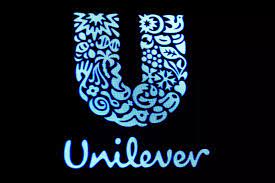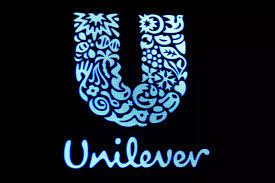
Nelson Peltz, a billionaire activist and board member, is "fully behind" a recently developed plan to revitalise the company, according to Unilever CEO Hein Schumacher, despite the doubts of some other investors following years of underperformance in the industry.
According to Schumacher, he wants Unilever—whose brands include Ben & Jerry's ice cream, Hellmann's condiments, and Dove soap—to develop a "systematic" marketing plan for its leading products.
The 52-year-old Dutchman added that he had no qualms about cutting 127,000 jobs at Unilever.
The group's brand portfolio grew to over 400 under his predecessor Alan Jope, who faced criticism for not giving management enough time to concentrate on its top performers.
Investors had also chastised Unilever for failing to regain profit margins following the epidemic and, in certain circumstances, for overemphasising sustainability. Terry Smith of Fundsmith, for instance, blasted Unilever for prioritising sustainability over performance because it was "obsessed" with it.
Several analysts and investors chastised Unilever for allowing margins to deteriorate and for not reclaiming lost market share swiftly enough when the company released its fourth quarter earnings last week.
According to reports that surfaced in January 2022, Peltz had been increasing his ownership of Unilever through his investment fund Trian Partners. In July of that same year, he was elected to the board of Unilever. According to LSEG data, as of March 2023, the fund owned 1.45% of Unilever.
Jope's exit was revealed by September 2022, and in July of the following year, Schumacher took over as CEO.
"Nelson came on the board (because) there was dissatisfaction with the performance," Schumacher said. "He saw an opportunity to buy at the share price where he thought there was potential."
Peltz's opinions are "very much in line" with Unilever's growth strategy, according to Schumacher. This entails bolstering its innovation pipeline for the upcoming few years, investing more in its top 30 brands—which account for more than 70% of sales—and pursuing improved operating discipline.
Schumacher added that Peltz favours Unilever's business line division by category rather than by geography. This structure contrasts with Nestle's geographically-focused organisation and is comparable to that which Trian is commonly believed to have influenced at rival P&G.
There was no comment from Trian.
In recent years, a few investors have demanded that Unilever take a further step and separate its food division, which is home to trademarks like Knorr stock cubes and Marmite spreads.
"When you talk about bigger portfolio changes, obviously I'm looking at that," Schumacher responded when asked if he would think about spinning off the company. "But the biggest opportunity for now is executing our growth action plan."
Last week, Unilever announced the start of a 1.5 billion euro ($1.6 billion) share repurchase programme following the first growth in volumes in ten quarters. Only two of its businesses—ice cream and nutrition—reported lower volume sales in the fourth quarter.
Peltz and Schumacher were coworkers at HJ Heinz when the activist investor was arranging Kraft Foods to merge. Having a track record of upending consumer goods corporations, Peltz enthusiastically welcomed him to the role of CEO at Unilever.
"Performance culture changes" were among Schumacher's key concerns upon his appointment. "That will mean that some part of the workforce will say 'not for me'," he stated.
Unilever has reorganised a large portion of its executive team under Schumacher, recruiting executives such as Esi Eggleston Bracey, who is currently the head of growth and marketing, and replacing longstanding finance chief Graeme Pitkethly.
According to Schumacher, he wants Eggleston Bracey to create a very clear two- to three-year market development roadmap for the leading brands of Unilever.
"We don't have it today as systematic as I'd like it to be,” he added.
When Schumacher first unveiled long-awaited strategic plans, some investors told Reuters in October that they were disappointed and that they would have liked a more thorough restructure.
"I'm now in the mode of 'okay, I heard you and this is what we're doing about it," he said. "History will judge whether I will be a good or bad CEO."
(Source:www.reuters.com)
According to Schumacher, he wants Unilever—whose brands include Ben & Jerry's ice cream, Hellmann's condiments, and Dove soap—to develop a "systematic" marketing plan for its leading products.
The 52-year-old Dutchman added that he had no qualms about cutting 127,000 jobs at Unilever.
The group's brand portfolio grew to over 400 under his predecessor Alan Jope, who faced criticism for not giving management enough time to concentrate on its top performers.
Investors had also chastised Unilever for failing to regain profit margins following the epidemic and, in certain circumstances, for overemphasising sustainability. Terry Smith of Fundsmith, for instance, blasted Unilever for prioritising sustainability over performance because it was "obsessed" with it.
Several analysts and investors chastised Unilever for allowing margins to deteriorate and for not reclaiming lost market share swiftly enough when the company released its fourth quarter earnings last week.
According to reports that surfaced in January 2022, Peltz had been increasing his ownership of Unilever through his investment fund Trian Partners. In July of that same year, he was elected to the board of Unilever. According to LSEG data, as of March 2023, the fund owned 1.45% of Unilever.
Jope's exit was revealed by September 2022, and in July of the following year, Schumacher took over as CEO.
"Nelson came on the board (because) there was dissatisfaction with the performance," Schumacher said. "He saw an opportunity to buy at the share price where he thought there was potential."
Peltz's opinions are "very much in line" with Unilever's growth strategy, according to Schumacher. This entails bolstering its innovation pipeline for the upcoming few years, investing more in its top 30 brands—which account for more than 70% of sales—and pursuing improved operating discipline.
Schumacher added that Peltz favours Unilever's business line division by category rather than by geography. This structure contrasts with Nestle's geographically-focused organisation and is comparable to that which Trian is commonly believed to have influenced at rival P&G.
There was no comment from Trian.
In recent years, a few investors have demanded that Unilever take a further step and separate its food division, which is home to trademarks like Knorr stock cubes and Marmite spreads.
"When you talk about bigger portfolio changes, obviously I'm looking at that," Schumacher responded when asked if he would think about spinning off the company. "But the biggest opportunity for now is executing our growth action plan."
Last week, Unilever announced the start of a 1.5 billion euro ($1.6 billion) share repurchase programme following the first growth in volumes in ten quarters. Only two of its businesses—ice cream and nutrition—reported lower volume sales in the fourth quarter.
Peltz and Schumacher were coworkers at HJ Heinz when the activist investor was arranging Kraft Foods to merge. Having a track record of upending consumer goods corporations, Peltz enthusiastically welcomed him to the role of CEO at Unilever.
"Performance culture changes" were among Schumacher's key concerns upon his appointment. "That will mean that some part of the workforce will say 'not for me'," he stated.
Unilever has reorganised a large portion of its executive team under Schumacher, recruiting executives such as Esi Eggleston Bracey, who is currently the head of growth and marketing, and replacing longstanding finance chief Graeme Pitkethly.
According to Schumacher, he wants Eggleston Bracey to create a very clear two- to three-year market development roadmap for the leading brands of Unilever.
"We don't have it today as systematic as I'd like it to be,” he added.
When Schumacher first unveiled long-awaited strategic plans, some investors told Reuters in October that they were disappointed and that they would have liked a more thorough restructure.
"I'm now in the mode of 'okay, I heard you and this is what we're doing about it," he said. "History will judge whether I will be a good or bad CEO."
(Source:www.reuters.com)














